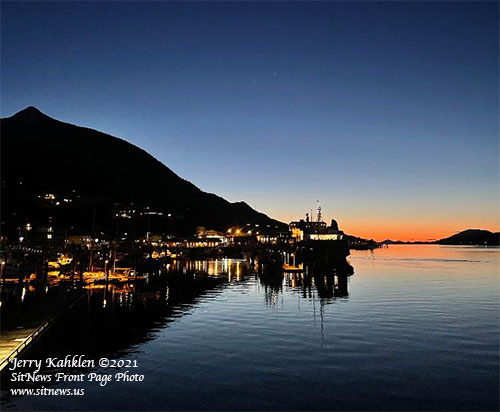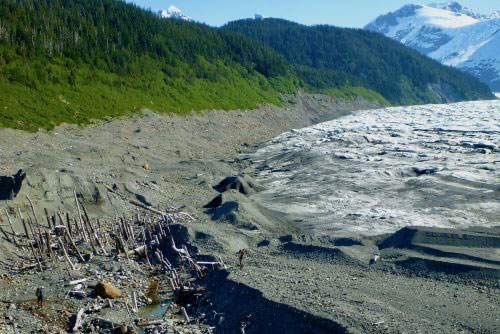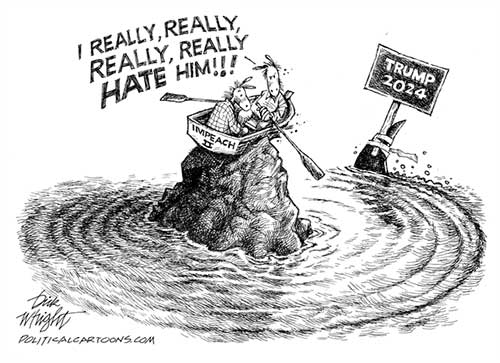













 Contact Contact 
 Webmail
Letters Webmail
Letters
 News Tips News Tips
 Copyright Info Copyright Info
 Archives Archives
Quick News
Search
 Alaska Alaska
 Ketchikan Ketchikan
 SE Alaska SE Alaska
Columns
- Articles
 Dave Kiffer Dave Kiffer
 Money Matters Money Matters
Historical
Ketchikan
 June Allen June Allen
 Dave
Kiffer Dave
Kiffer
 Louise
B. Harrington Louise
B. Harrington
Sports
 Ketchikan Links Ketchikan Links
Public Records
 FAA Accident Reports FAA Accident Reports
 NTSB
Accident Reports NTSB
Accident Reports
 Court Calendar Court Calendar
 Recent Filings & Case Dispositions Recent Filings & Case Dispositions
 Court Records Search Court Records Search
 Sex Offender Reg. Sex Offender Reg.
 Public Notices Public Notices
 Alaska Recall Alerts Alaska Recall Alerts
 Recalls.gov Recalls.gov
 AST Daily Dispatch AST Daily Dispatch
 KTN
Police Reports KTN
Police Reports
 Juneau Police Reports Juneau Police Reports
Weather,
Webcams
 Today's
Forecast Today's
Forecast
 KTN
Weather Data KTN
Weather Data
 AK
Weather Map AK
Weather Map
 AK Weathercams AK Weathercams
 AK Earthquakes AK Earthquakes

|
|

Sunday
February 21, 2021

Ketchikan Sunrise from Berth 4
SitNews Front Page Photo By JERRY KAHKLEN ©2021
To have your photo(s) featured on the front page,
email your photo(s) to editor@sitnews.us |
| Fish Factor: Alaskans Prepare for Poor to Average Salmon Runs By LAINE WELCH - Alaskans are preparing for another salmon season of poor to average runs to most regions.
The big exception once again is at Bristol Bay where another massive return of more than 51 million sockeyes is expected. Managers predict that surge will produce a harvest of over 36 million reds to fishermen.
Bristol Bay is home to the largest wild sockeye salmon run in the world and typically accounts for 42% of the world’s sockeye harvest. Those fish and all wild salmon compete in a tough worldwide commodities market, where Alaska salmon claims 13% of the global supply.
Farmed salmon production, which outnumbers wild harvests by nearly three to one, is Alaska’s biggest competitor; the other is Russia.
According to global seafood trading company Tradex, Pacific salmon catches from Russia are projected to top one billion pounds in 2021. As a comparison, Alaska’s 2020 catch of nearly 117 million salmon weighed in at just over 500 million pounds.
The Russian catch breaks down to more than 700 million pounds of pinks, nearly 206 million pounds of chum salmon, 70.6 million pounds of sockeyes, over 24 million pounds of coho salmon and 8.8 million pounds of Chinook.
Sockeyes are Alaska’s big money maker, comprising well over one-third of the salmon fishery’s total value each year, and the market outlook continues to be encouraging.
“The global sockeye market continues to strong and it continues to be a popular and a sought after product,” said Tasha Cadence, a Tradex spokesperson.
That is borne out at home, said Rising Tides Communications of Anchorage which handles marketing across all platforms for the fishermen funded/operated Bristol Bay Regional Seafood Development Association.
“Despite a wild ride during a global pandemic, the BBRSDA marketing program had an incredibly successful year,” Rising Tide wrote in its annual report. “On the retail side, in spite of several pandemic-related retail promotion cancellations, we grew from 800 retail promotions in 2019 to 2200 in 2020 - a 175% increase. The average ‘lift’ experienced by our retail partners during our promotions grew from 34% in 2019 to 52% in 2020.”
Tradex’s Cadence recommended that buyers “purchase enough sockeye for your future requirements if you want to continue to have a salmon program” and added that “prices are high but remain steady and we should expect pricing to remain this way until the 2021 salmon fisheries in Alaska and Russia start up.”
In 2020, the U.S. imported nearly four million pounds of salmon from Russia worth over $14 million. More than half was sockeye salmon, valued at nearly $9 million.
And the competition from the “Great Bear” will only get tougher.
Russia is making huge investments to increase and modernize its fishing capacity by building more than 20 new processing plants and 90 new vessels by the year 2030. The plan also includes the launch of a new marketing and supply chain strategy called “the Russian Fish.”
And while that imported fish will compete directly with U.S. catches at retail counters and restaurants, sales have not been reciprocated and Russia has not purchased an American-caught pound since 2014. (The snub stems from a politically motivated embargo over U.S. objections to Russia’s incursions into Ukraine.)
According to the Alaska Seafood Marketing Institute, the value of Russian seafood imports to the U.S. has grown 70 percent since 2014 and has more than tripled to nearly $700 million in 2019, an increase of $11.5 million over 2018.
And the Russian seafood comes into the U.S. almost entirely duty free. - More...
Sunday PM - February 21, 2021
Alaska: Alaska House of Representatives finalized leadership team & legislative committees - Almost a month to the day from the start of the 90-day legislative session, the Alaska House Coalition finalized its leadership team, and the House of Representatives voted to adopt a report that establishes the membership of legislative committees. The leadership team was adopted on February 18th.
“We’re ready to get to work and move forward with the people’s business,” Speaker Stutes said.
Stutes said, “Now that the House is organized, we’ll hit the ground running and start advancing policies that protect the health and welfare of Alaskans, confront our budget challenges, and improve public safety.” - More...
Sunday PM - February 21, 2021
Alaska: Lt. Governor Meyer Introduces Election Integrity Legislation - Alaska Lieutenant Governor Kevin Meyer last week introduced Senate Bill 83 (SB 83), an election integrity bill that is said would provide additional tools for the Alaska Division of Elections to increase Alaskan’s trust in elections and the voting process.
“The integrity of our elections is of utmost importance – we cannot have a functioning democracy without it. This bill would not create an overhaul of our existing elections system but rather bolster what already works,” said Lt. Governor Meyer.
Lt. Governor Meyer is expanding the statewide conversation about election security and integrity. In addition to proposals presented by Senator Shower, Senator Hughes, and Representative Rauscher, the ideas presented in SB 83 reflect the firsthand experience the Lt. Governor gained while overseeing the 2020 primary and general elections. - More...
Sunday PM - February 21, 2021
|

Kathy Fitzgerald, the volunteer gift shop manager.
Photo courtesy Ketchikan Medical Center |
|
Ketchikan: KMC gift shop volunteers donate proceeds to hospital operations - The volunteers who run the gift shop in the Ketchikan Medical Center (KMC) lobby have given about $750,000 to PeaceHealth Ketchikan since the shop opened in 1977.
Kathy Fitzgerald is the volunteer shop manager. “All profits from the gift shop go back to the hospital through a grant program,” she said. “This year we had about $54,000 to dedicate to equipment and training materials.”
In the past, volunteers met to decide where to donate the proceeds. It was, of course, different this year. “We ‘met’ and voted by email this year,” said Fitzgerald.
The volunteers’ recommendations were sent to the KMC Foundation Board which approved a wide-ranging list of requests across PeaceHealth Ketchikan departments.
Grants ranged from $280 for lymphedema treatment tools to $12,670 for six surgical helmets with air filtration systems which will be used to protect patients and surgical staff within the sterile field.
Also funded: - More...
Sunday PM - February 21, 2021
Ketchikan: Burst Pipes from Recent Cold Weather Causes UAS Ketchikan Damage - During the recent cold weather, a sprinkler pipe froze and burst in the Zeigler Building at 2600 7th Avenue on the UAS Ketchikan Campus, resulting in a large amount of water travelling through corrugated roofing panels to various locations on the first and second floor of the building.
Water making its way through the corrugated roofing panels and draining to spaces below flooded areas of the UAS Ketchikan Library, the Student Center and a number of offices and hallways. Approximately 5,000 UAS Ketchikan Library books, a number of computers and monitors, important documents, office furniture, carpet flooring and ceiling tile were subject to various levels of water damage.
Quoting a Feburary 17th news release, UAS Ketchikan has concluded damage inventories and acquired repair/replacement cost estimates. "We are working diligently to make repairs to the building. We anticipate these repairs will be completed within two weeks."
Ketchikan Fire Department Chief Scott Brainard and his teams responded in record time to the alarm callout and provided help above and beyond in assisting in the initial water extraction and debris removal procedures. According to Business Manager Chris Hoyt, their quick response and assistance proved an incredible help during a very difficult event for the campus. Fire Marshal Gretchen O’Sullivan's on-the-spot responses to short- and long-term solutions for systems repair and building fire protection options was greatly appreciated and very helpful said Hoyt. - More...
Sunday PM - February 21, 2021 |

‘Ghost forest’ got run over by a glacier
By NED ROZELL
The retreat of La Perouse Glacier in Southeast Alaska exposed this “ghost forest.” The glacier ran over the rainforest trees long ago. Two people are also in the photo.
Photo by Ben Gaglioti |
|
Alaska: ‘Ghost forest’ got run over by a glacier By NED ROZELL - As a few scientists hiked a path between the ice towers of a Southeast Alaska glacier and crashing ocean waves in 2016, they topped a ridge and saw massive tree trunks poking from gravel ahead. The dead, sheared-off rainforest stems pointed toward the ocean like skeletal fingers.
In this “ghost forest,” not visible to fisherman or others passing by on ships, the researchers had stumbled on something they just had to study.
Ben Gaglioti ponders the ecology of ancient landscapes at the University of Alaska Fairbanks Water and Environmental Research Center. He is leading a study on the ghost forest near the tongue of La Perouse Glacier, which flows from the St. Elias Mountains almost all the way to the Gulf of Alaska.
On that trip when he and his fellow researchers first saw the gray trunks of huge trees clipped off 20 feet above the ground, Gaglioti guessed their fate: La Perouse Glacier had run them over, after first shoring up the stems with gravel from its own outwash. The glacier had since shrunk backward, revealing the stumps.
Gaglioti and his colleagues — including UAF’s Dan Mann and Greg Wiles of the College of Wooster in Ohio — used tree corers to learn when the trees died, which told them about when the glacier advanced. They matched the growth rings with living rainforest trees that were nearby but out of the glacier’s path.
They found that La Perouse Glacier had bulldozed the trees some time from 1850 to 1866, around when the Civil War was happening and Abraham Lincoln was president.
By coring other living trees in the area, including western hemlock, Sitka spruce, Alaska yellow cedar and mountain hemlock, the scientists found that the ghost forest had established itself in the path of La Perouse Glacier by about the year 1206. That was many centuries before the glacier rumbled forward to consume them.
Why did the glacier overrun the trees?
About the time La Perouse Glacier was advancing, most of the world was experiencing cooler temperatures. Researchers call the period — from about 1250 to about 1900 — the Little Ice Age. Global temperatures then were cooler than previous centuries.
Scientists aren’t certain what caused the Little Ice Age, but these are possible reasons: lower radiation reaching Earth from the sun, aerosols from multiple volcanic eruptions that deflected the sun’s rays, changes in ocean circulation, variations in Earth’s orbit and tilt, and lower human population (and less agriculture, leading to the growth of more carbon-absorbing trees) due to the Black Death and other diseases. - More...
Sunday PM - February 21, 2021
|
|
Earth Science: Ancient relic points to a turning point in Earth's history 42,000 years ago; Just like in The Hitchhiker's Guide to the Galaxy, the answer was 42 - The temporary breakdown of Earth's magnetic field 42,000 years ago sparked major climate shifts that led to global environmental change and mass extinctions, a new international study co-led by UNSW Sydney and the South Australian Museum shows.
This dramatic turning point in Earth's history - laced with electrical storms, widespread auroras, and cosmic radiation - was triggered by the reversal of Earth's magnetic poles and changing solar winds.
The researchers dubbed this danger period the 'Adams Transitional Geomagnetic Event', or 'Adams Event' for short - a tribute to science fiction writer Douglas Adams, who wrote in The Hitchhiker's Guide to the Galaxy that '42' was the answer to life, the universe, and everything.
The findings were published Friday in Science.
"For the first time ever, we have been able to precisely date the timing and environmental impacts of the last magnetic pole switch," says , a professor at UNSW Science and co-lead author of the study.
"The findings were made possible with ancient New Zealand kauri trees, which have been preserved in sediments for over 40,000 years.
"Using the ancient trees we could measure, and date, the spike in atmospheric radiocarbon levels caused by the collapse of Earth's magnetic field."
While scientists already knew the magnetic poles temporarily flipped around 41-42,000 years ago (known as the 'Laschamps Excursion'), they didn't know exactly how it impacted life on Earth - if at all.
But the researchers were able to create a detailed timescale of how Earth's atmosphere changed over this time by analysing rings on the ancient kauri trees. - More...
Sunday PM - February 21, 2021
Fisheries: Fishes contribute roughly 1.65 billion tons of carbon in feces and other matter annually; Study estimates fishes contribute about 16 percent of the sinking carbon in upper ocean waters - Scientists have little understanding of the role fishes play in the global carbon cycle linked to climate change, but a Rutgers-led study found that carbon in feces, respiration and other excretions from fishes - roughly 1.65 billion tons annually - make up about 16 percent of the total carbon that sinks below the ocean's upper layers.
Better data on this key part of the Earth's biological pump will help scientists understand the impact of climate change and seafood harvesting on the role of fishes in carbon flux, according to the study - the first of its kind - in the journal Limnology and Oceanography. Carbon flux means the movement of carbon in the ocean, including from the surface to the deep sea - the focus of this study.
"Our study is the first to review the impact that fishes have on carbon flux," said lead author Grace K. Saba, an assistant professor in the Center for Ocean Observing Leadership in the Department of Marine and Coastal Sciences in the School of Environmental and Biological Sciences at Rutgers University-New Brunswick.
Saba said, "Our estimate of the contribution by fish - about 16 percent - includes a large uncertainty, and scientists can improve it with future research. Forms of carbon from fish in ocean waters where sunlight penetrates - up to about 650 feet deep - include sinking fecal pellets, inorganic carbon particles (calcium carbonate minerals), dissolved organic carbon and respired carbon dioxide."
The ocean plays a vital role in the Earth's carbon cycle by exchanging carbon dioxide, a key greenhouse gas linked to global warming and climate change, with the atmosphere. Carbon dioxide absorbed by the ocean is taken up by phytoplankton (algae), small single-celled plants at the ocean's surface. Through an important process called the biological pump, this organic carbon can go from the surface to ocean depths when algal material or fecal pellets from fishes and other organisms sink. The daily migration of fishes to and from the depths also contributes organic carbon particles, along with excreted and respired material. Another factor is mixing of ocean waters. - More...
Sunday PM - February 21, 2021
|
|
Internet: Twenty-Six Words Created the Internet. What Will It Take to Save It? By STEVEN ENGELBERG, PROPUBLICA - Jeff Kosseff wrote the book on Section 230, the law that gave us the internet we have today. He talks with ProPublica Editor-in-Chief Stephen Engelberg about how we got here and how we should regulate our way out.
Way back when AOL was a big tech company and people reached the World Wide Web via dial-up modems, Congress added a provision to federal law that has had a profound effect on every aspect of our democracy and public life. It’s called Section 230 of the Communication Decency Act, and it ruled that internet platforms, or message boards as they then were largely called, are not legally liable for false or defamatory information posted by users.
Although no one could have imagined it at the time, the 1996 legislation made possible the explosive growth of the modern internet. Freed from the threat of being sued for libel, Facebook, Twitter, Reddit and other corners of cyberspace became places where literally billions of people felt free to say whatever they wanted, from robust political disputes to false accusations of horrific acts to the spread of disinformation and lies. People often wrote actionable things about others but were seldom, if ever, sued personally for what they had said, the only recourse allowed under the new law. Also, individuals were less attractive targets for costly lawsuits than wealthy corporations.
The protection from legal liability proved essential to the explosive growth of the internet platforms, allowing them to remove posts that contained hate speech and other graphic material that might drive away users or advertisers. But at the same time, they did not have to read, research and “moderate,” in their terminology, every vituperative, spite-laced statement put on their sites by users.
Jeff Kosseff, a former reporter turned lawyer and legal scholar, has emerged as one of the leading experts on the 1996 law and is author of the aptly titled book “The Twenty-Six Words That Created the Internet.” With a growing impetus for both political parties to do something to improve Section 230, I connected with Kosseff recently to get his thoughts. (Full disclosure: When I was a managing editor at the Oregonian back in the early aughts, he covered telecommunications for the paper and eventually became its Washington correspondent.)
For those of you not steeped in press and communications law, here are the 26 words. They’re not exactly felicitous.
“No provider or user of an interactive computer service shall be treated as the publisher or speaker of any information provided by another information content provider.”
How did you get into this seemingly obscure subject?
It’s funny. [Oregon Sen. Ron] Wyden was one of the people who wrote Section 230, but when I covered him on a daily basis for about five years, he never mentioned this to me. It wasn’t until I started practicing law: I would represent media companies that had mostly local news outlets, but would have user comments on their websites. We would occasionally get complaints from people who wanted us to remove the user comments. And I quickly learned that I just needed to send them a one-page letter citing this thing called Section 230, and they would magically go away. I thought that was pretty remarkable, and I was just really intrigued by how we had something in the law that let me tell people to go buzz off.
Were there unexpected discoveries in your research?
The most surprising thing was that this law passed with almost no attention whatsoever. It was folded into the Telecommunications Act of 1996. All of the media coverage at the time was about things like long-distance telephone competition, because that’s where the lobbyists were. Nobody really noticed that there was this liability protection [that] had been put in. At the time, this was really about Prodigy and AOL, but no one really cared, because no one really thought very much about what the impact would be of making Prodigy immune from tort lawsuits. There was a little coverage of the fact that [Congress was] basically shielding companies from almost any liability whatsoever. It took quite a few years before people started to see what Section 230 actually did.
Could the platforms that we all know so well — Twitter, Facebook, Instagram, for starters — exist without Section 230?
No, they’d have looked very different without Section 230. Without it, they would either have to prescreen content, which would basically upend their business model, or, as the liberals would like, they would have to remove any user content as soon as they received a complaint. That would make it much more difficult to operate a site like Yelp, which relies on having negative user content that people that it’s about would want taken down. - More...
Sunday PM - February 21, 2021 |
MONEY MATTERS: THE GREATER FOOL THEORY By MARY LYNNE DAHL, Certified Financial Planner ™
- In Europe during the 17th century, Holland was the world’s leading economy with the highest per capita income in the world and it operated a formal investment market, similar to our own modern stock market. Assets bought and sold in this market included tulips, among other things. Tulips were valued as fashionable and elegant flowers for wealthy homeowners. They were expensive, so the price of the bulbs rose dramatically as the demand for them grew. During the mid-1600s, tulips became the subject of so much price speculation that the rarest bulbs sold for as much as six times the annual salary of an average Dutchman. This speculation in tulip prices became known as the “tulip mania”. This term is often used to describe an economic bubble of any investment that is selling at prices that are far above the actual value of the asset itself.
There is a feeling of déjà vu about this story of the Dutch tulip mania. Many scholars over the centuries since it was first reported have disagreed on why and how it happened, but there are several similarities between the then and now that are interesting. One is that the speculation in tulips was conducted primarily among wealthy merchants and skilled craftsmen in Holland, not the nobility. They were successful enough to have discretionary income, but they were not the extremely wealthy, ultra-rich. It happened during a plague, and was considered a “winter drinking game” for a plague-weary population looking for a way to liven up the dark days they were living through. Does all of this sound vaguely familiar? - More...
Sunday PM - February 21,2021
 |
FINANCIAL FOCUS: Estate Planning for Blended Families
Provided By BEN EDWARDS, AAMS® - If you’re in a blended family, you’re already aware of the emotional and financial issues involved in your daily life. But what about the future? When it’s time to do your estate planning – and it’s never too soon for that – you’ll need to be aware of the entanglements and complexities that can get in the way of your vision for leaving the legacy you desire.
You can take comfort in knowing that you’re far from alone. More than half of married or cohabiting couples with at least one living parent, or parent-in-law, and at least one adult child, have a “step-kin” relationship, according to a study from researchers at the University of Massachusetts and other schools. That’s a lot of estate-planning issues.
Nonetheless, the task does not have to be overwhelming – as long as you put sufficient time and thought into it. Here are some ideas that may help:
• Seek fairness – but be flexible. Even in a nonblended family, it’s not always easy to be as equitable as you’d like in your estate plans – too often, someone feels they have been treated unfairly. In a blended family, these problems can be exacerbated: Will biological children feel cheated? Will stepchildren? Keep this in mind: Fair is not always equal – and equal is not always fair. When deciding how to divide your assets, you’ll need to make some judgment calls after carefully evaluating the needs of all your family members. There’s no guarantee that everyone will be satisfied, but you’ll have done your best.
- More...
Sunday PM - February 21, 2021
|

Political Cartoon: Open Immediately
By Randall Enos©, Easton, CT
Distributed to subscribers for publication by Cagle Cartoons, Inc.

Political Cartoon: Cuomo Man
By Rick McKee©, Counterpoint
Distributed to subscribers for publication by Cagle Cartoons, Inc.

Political Cartoon: Biden Double Masking
by Nate Beeler ©,Counterpoint
Distributed to subscribers for publication by Cagle Cartoons, Inc.

Political Cartoon: Impeach on Rocks
By Dick Wright ©,PoliticalCartoons.com
Distributed to subscribers for publication by Cagle Cartoons, Inc. |
Australia, fighting Facebook, is the latest country to struggle against foreign influence on journalism By VANESSA FREIJE - Facebook has barred Australians from finding or sharing news on its platform, in response to an Australian government proposal to require social media networks to pay journalism organizations for their content. The move is already reducing online readership of Australian news sites.
Similar to what happened when Facebook suspended Donald Trump’s account in January, the fight with Australia is again raising debate around social media networks’ enormous control over people’s access to information. Australia’s prime minister, Scott Morrison, says his country “will not be intimidated” by an American tech company.
My research in the history of international media politics has shown that a handful of rich countries have long exerted undue influence over how the rest of the world gets its news.
Facebook has 2.26 billion users, and most of them live outside of the United States, according to the company. India, Indonesia, Brazil, Mexico and the Philippines are home to the most Facebook users outside the U.S.
Facebook’s share of the global social media market is staggering, but the company is not alone. Eight of the world’s 11 most popular social media companies are based in the U.S.. These include YouTube and Tumblr, as well as Instagram, which is owned by Facebook.
The geographic concentration of information technology puts these billions of non-American social media users and their government officials in a subservient position.
The business decisions of Big Tech can effectively dictate free speech around the world. - More...
February 21, 2021
Protect Alaska’s Economy From Further COVID Damage By Bill Vivlamore - It’s safe to say that 2020 was both a surprising year and a trying one for many. A year ago, no one could have predicted the effect the coronavirus would have on Alaska or the multiple shutdowns that have occurred. But now that the vaccine is becoming available, many are hopeful that life will return to normal. As businesses continue trying to recover and reopen, it is critical that they and their customers all feel safe. The best way to ensure this is by expanding liability protection from COVID claims (now being provided to health care providers and PPE manufacturers) to all Alaska businesses permanently. - More...
Sunday PM - February 14, 2021
 |
We need to divest ourselves of Murkowski By Roger McDonald - I was not pleased many years ago when Frank Murkowski appointed his daughter to the Senate. Over the years she has proven to be an embarrassment to Alaska and a not effective senator. Is there an honest, competent, Republican to run against her? - More...
Sunday PM - February 14, 2021
Censure Murkowski By A.M. Johnson - This is submitted from a long ago departing Republican from the party with little spine.- More...
Sunday PM - February 14, 2021
China Laboratories Unleashed The Pandemic By Donald Moskowitz - Communist China exported the COVID 19 virus to the United States and the rest of the world, and it is primarily responsible for the millions of deaths, virus ailments, and economic hardship in the world. - More...
Sunday PM - February 14, 2021
Email letters, opinions, OPEDs to editor@sitnews.us
|
Articles &
photographs that appear in SitNews may be protected by copyright
and may not be reprinted or redistributed without written permission
from and payment of required fees to the proper sources.
E-mail your news &
photos to editor@sitnews.us
Photographers choosing to submit photographs for publication to SitNews are in doing so, granting their permission for publication and for archiving. SitNews does not sell photographs. All requests for purchasing a photograph will be emailed to the photographer.
|
|











The Local Paper is
available online.
Click here for this week's printed edition (PDF)



|
|
![]() Contact
Contact ![]()
![]() Webmail
Letters
Webmail
Letters![]()
![]() News Tips
News Tips![]()
![]() Copyright Info
Copyright Info![]() Archives
Archives![]() Alaska
Alaska![]() Ketchikan
Ketchikan![]() SE Alaska
SE Alaska![]() Dave Kiffer
Dave Kiffer![]() Money Matters
Money Matters ![]() June Allen
June Allen![]() Dave
Kiffer
Dave
Kiffer![]() Louise
B. Harrington
Louise
B. Harrington ![]() Ketchikan Links
Ketchikan Links![]() FAA Accident Reports
FAA Accident Reports ![]() NTSB
Accident Reports
NTSB
Accident Reports![]() Court Calendar
Court Calendar![]() Recent Filings & Case Dispositions
Recent Filings & Case Dispositions ![]() Court Records Search
Court Records Search![]() Sex Offender Reg.
Sex Offender Reg.![]() Public Notices
Public Notices![]() Alaska Recall Alerts
Alaska Recall Alerts![]() Recalls.gov
Recalls.gov![]() AST Daily Dispatch
AST Daily Dispatch![]() KTN
Police Reports
KTN
Police Reports![]() Juneau Police Reports
Juneau Police Reports ![]() Today's
Forecast
Today's
Forecast![]() KTN
Weather Data
KTN
Weather Data![]() AK
Weather Map
AK
Weather Map![]() AK Weathercams
AK Weathercams![]() AK Earthquakes
AK Earthquakes






































